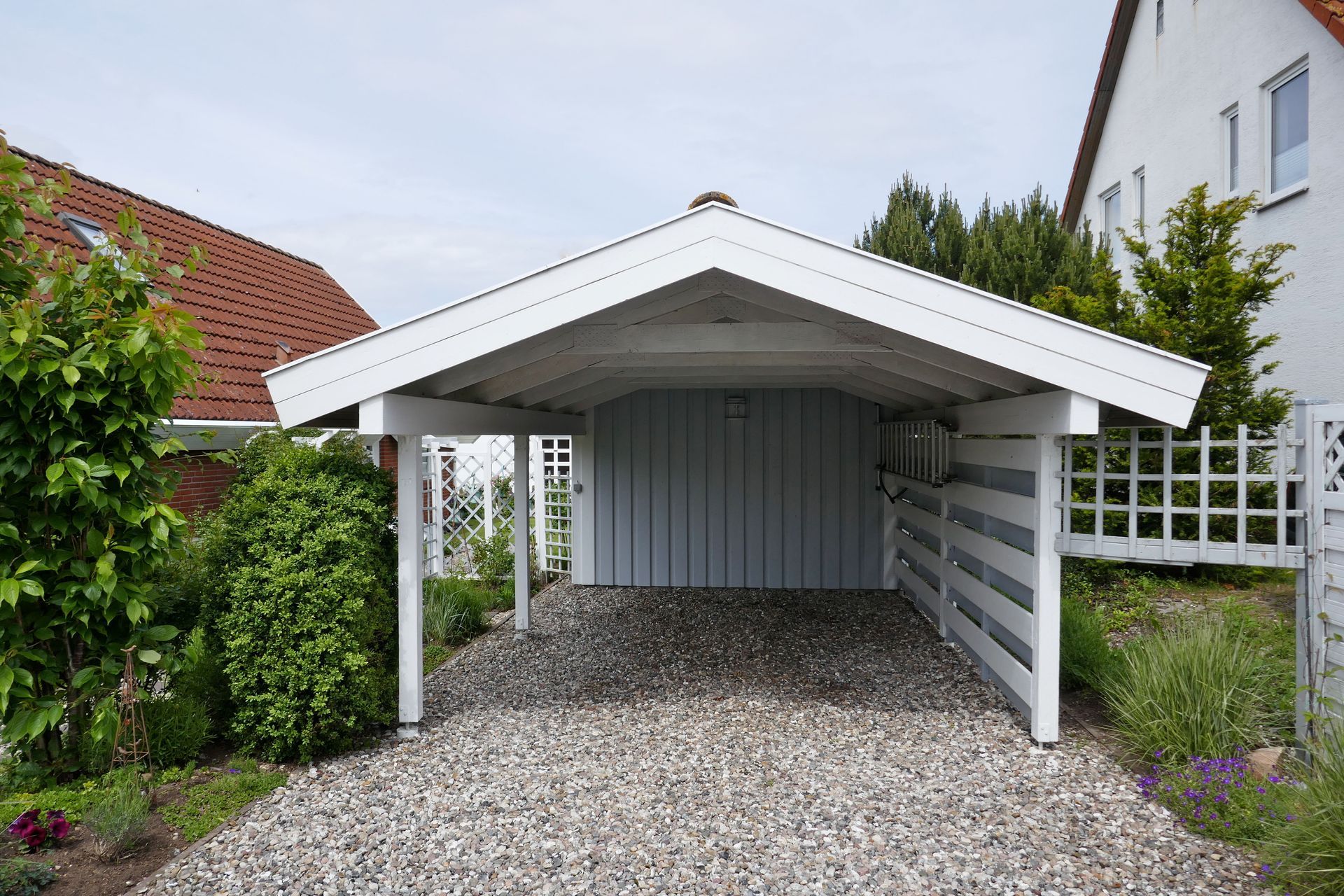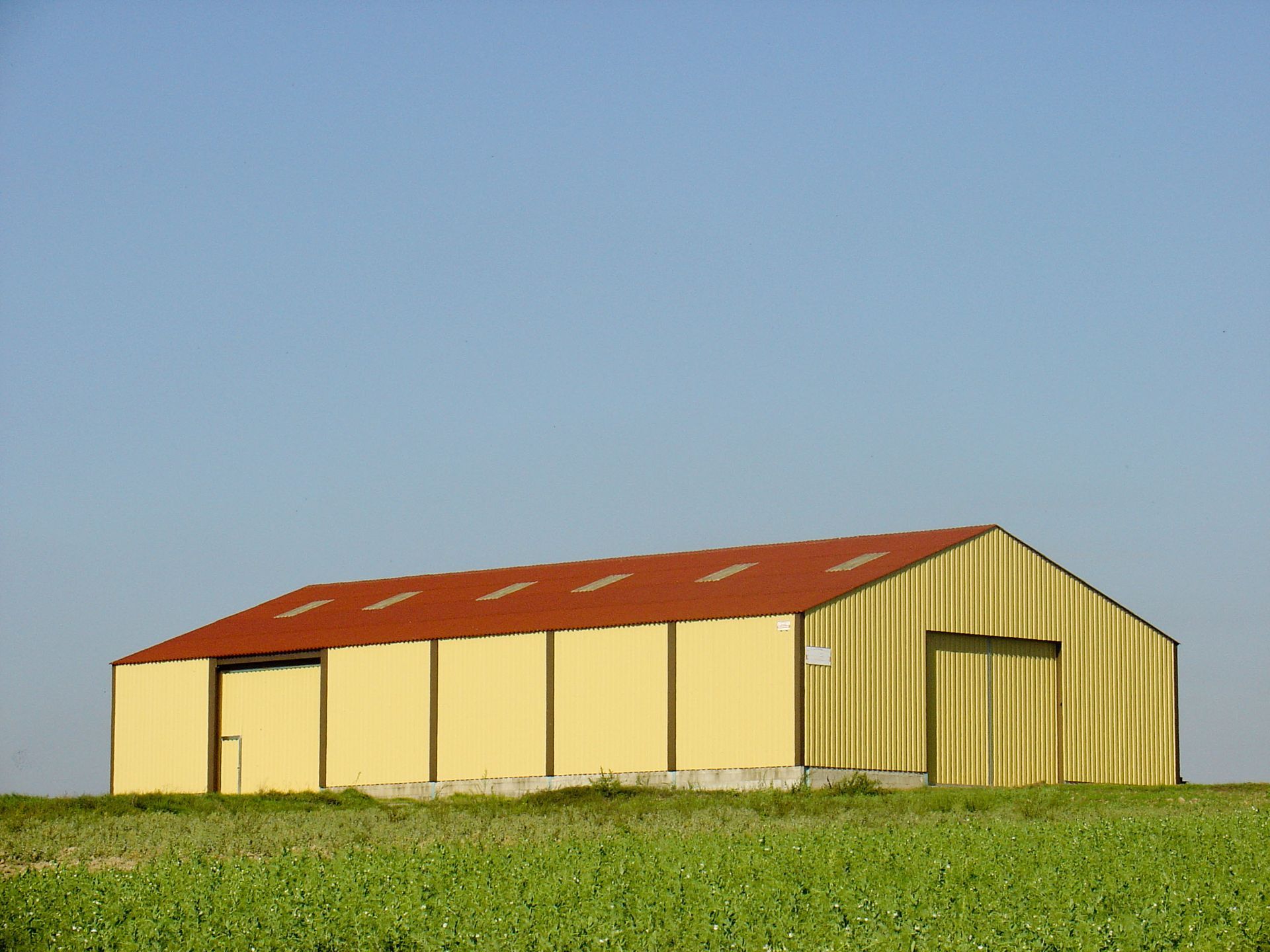Carports vs. Garages: Which Is Right for Your Home?
When considering how best to protect vehicles and outdoor equipment, homeowners often weigh the benefits of carports against the advantages of garages. Both options serve as protective structures, but they differ in design, cost, functionality, and impact on property value. Understanding the differences can help homeowners decide which choice aligns with their lifestyle, budget, and long-term goals.
Understanding Carports
Carports are open-sided structures, typically supported by posts with a roof overhead. They provide shade and protection from rain, snow, and sun exposure but do not enclose vehicles on all sides. Carports can be constructed using wood, steel, or aluminum and may be freestanding or attached to the home. Their simplicity makes them a cost-effective option for many homeowners seeking basic protection for cars, boats, or recreational vehicles.
Understanding Garages
Garages are fully enclosed spaces with walls, a roof, and a door. They provide complete shelter for vehicles, shielding them from weather conditions, vandalism, and theft. Beyond car storage, garages often double as workshops, storage areas, or laundry rooms, making them versatile additions to a property. A garage may be attached to the house for easy access or built as a detached structure in the yard.
Cost Comparison Between Carports and Garages
One of the primary factors homeowners evaluate is cost. Carports are generally much less expensive to install than garages. A basic carport may cost a fraction of the price of constructing a garage, making it an attractive choice for those on a tighter budget. Garages, however, require more materials, labor, and possibly permits, which significantly increases their cost. While garages add more upfront expenses, they may also add greater long-term value to the property.
Installation Time and Effort
Carports offer the benefit of quick installation. Prefabricated carport kits are widely available and can often be assembled in just a few days. Garages, on the other hand, require more extensive construction, which can take several weeks or even months depending on the complexity of the design. For homeowners seeking immediate protection for their vehicles, carports provide a faster solution.
Durability and Longevity
Durability is another important consideration. Carports, while sturdy, do not always offer the same level of long-term protection as garages. Because they are open-sided, strong winds, hail, and blowing debris can still reach vehicles. Garages, being fully enclosed, generally offer superior durability and protection from environmental factors. Homeowners in areas prone to severe weather may find garages to be a safer investment.
Security Benefits
Garages clearly have an advantage when it comes to security. With locked doors and four walls, they protect vehicles from theft and vandalism. Carports, while offering coverage, cannot provide the same level of security since they are open on one or more sides. For those who store valuable vehicles or equipment, a garage may provide peace of mind that a carport cannot match.
Impact on Property Value
Adding either a carport or a garage can increase a home's value, but in different ways. Garages are generally seen as more desirable to potential buyers, particularly in suburban or urban neighborhoods. They provide not only storage for vehicles but also extra indoor space, which appeals to many buyers. Carports, while functional, may not carry the same resale value, though they do enhance convenience for homeowners who need affordable shelter for vehicles.
Flexibility of Use
Carports can be versatile. Beyond parking cars, they can be used as shaded outdoor areas for gatherings, storage for boats or trailers, or even as covered play areas. Their open design makes them adaptable for different uses. Garages, while enclosed, also provide flexibility. They can serve as workshops, home gyms, or storage rooms, adding value and functionality to the home.
Maintenance Requirements
Carports generally require less maintenance than garages. Since they lack enclosed walls, there are fewer surfaces to clean or repair. The main upkeep involves ensuring the roof and support posts remain in good condition. Garages, with more structural elements, require ongoing care such as door maintenance, painting, and occasional repairs to flooring or insulation. The higher maintenance demands of garages may be a factor for homeowners who prefer low-effort options.
Climate Considerations
Local climate plays a significant role in choosing between carports and garages. In areas with mild weather, a carport may be sufficient for protecting vehicles from sun exposure and occasional rain. In regions with harsh winters, heavy snow, or frequent storms, a garage provides superior protection against the elements. Considering local weather patterns helps homeowners determine which option best suits their environment.
Customization and Design Options
Both carports and garages offer opportunities for customization. Carports can be designed with different roof styles, materials, and sizes to fit specific needs. They may be freestanding or attached to the home, depending on available space. Garages, however, offer even greater customization. From overhead storage systems to insulation and flooring options, garages can be tailored to match both functional needs and architectural style.
Building Regulations and Permits
Homeowners should be aware of local building codes and permit requirements. Garages often require permits and inspections because they are enclosed structures. Carports, while sometimes exempt from strict regulations, may still require permits depending on local ordinances. Before beginning construction, it is important to review these requirements to avoid potential issues.
Environmental Impact
Carports generally have a smaller environmental footprint due to fewer materials used in their construction. They require less concrete, wood, or steel compared to garages, which makes them a more sustainable option in some cases. Garages, while using more resources, can contribute positively by offering insulated storage space that improves energy efficiency within the home. Homeowners concerned about sustainability may weigh these factors when making a decision.
Trends in Pre-Engineered Structures
Carports and garages are both influenced by broader trends in construction. According to Grand View Research, the U.S. pre-engineered metal building market was valued at $12.04 billion in 2023 and is projected to grow at a CAGR of 8.4% from 2024 to 2030. This growth highlights increasing demand for durable, cost-effective structures, including carports made from metal materials. Homeowners benefit from this trend with more options and better affordability in prefabricated designs.
Space Requirements
The available space on a property also affects the decision. Carports typically require less space than garages and can often be installed in narrower or more awkward areas. Garages, with their enclosed walls and foundation needs, require more room and careful planning. For homeowners with limited yard space, carports may present a more practical solution.
Aesthetic Considerations
Appearance matters when adding a structure to a home. Carports can blend seamlessly with modern or minimalist architecture, providing functionality without dominating the landscape. Garages, depending on design, can either enhance or overwhelm a home's exterior. Custom garage doors, windows, and siding can improve curb appeal, but poorly designed garages may detract from the property's aesthetics. Homeowners should consider how each structure will integrate with existing architecture.
Insurance and Liability
Insurance coverage can differ between vehicles stored in carports and garages. Some insurers may offer lower rates for vehicles kept in a secure garage, recognizing the reduced risk of theft or damage. Vehicles stored in carports, while still protected from some environmental factors, may not qualify for the same discounts. Checking with an insurance provider can help clarify the financial implications of choosing one option over the other.
Long-Term Value
Garages tend to offer stronger long-term value due to their durability, versatility, and impact on resale prices. While carports are affordable and practical, they may not contribute as significantly to long-term equity in the home. Homeowners planning to sell their property in the future may lean toward garages for their broader appeal, while those focused on immediate affordability may find carports to be a better fit.
Ultimately, the choice between carports and garages depends on individual priorities. Homeowners seeking affordability, quick installation, and flexibility may find
carports to be the ideal solution. Those prioritizing security, storage, and long-term property value may decide that a garage is worth the additional cost and effort. By evaluating budget, climate, available space, and lifestyle needs, homeowners can make a decision that supports both their current and future goals. Call Xtreme Structurez today!



Share On: